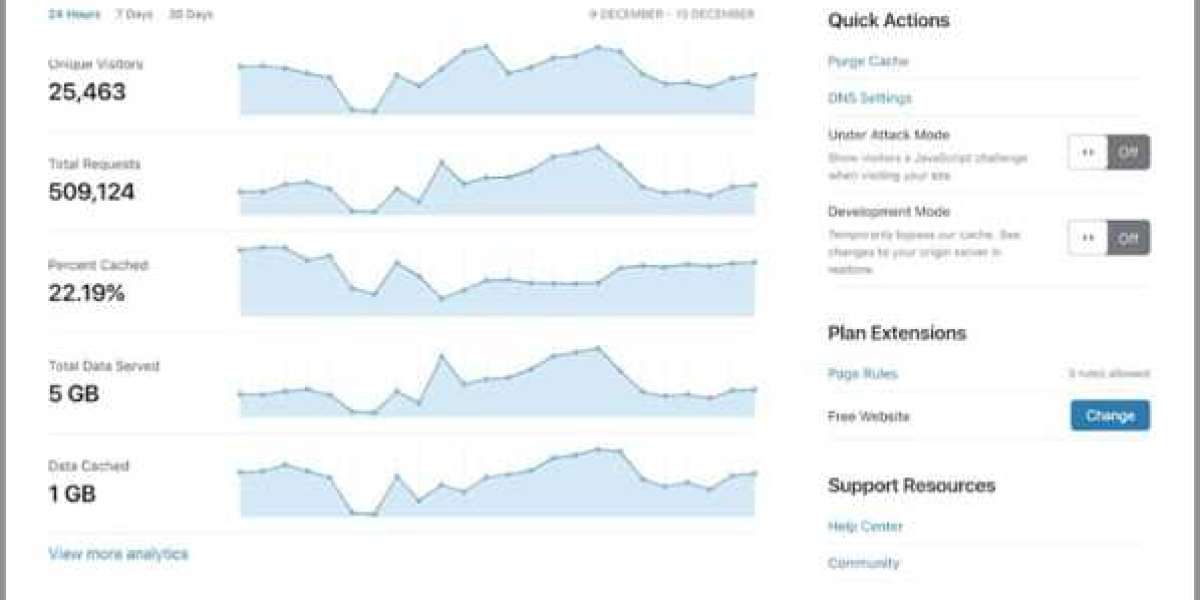Heart health is a critical aspect of overall well-being, and regular assessments can help in the early detection of potential issues. A stress test echocardiogram in Sydney comprehensively examines how well your heart performs under stress. This non-invasive procedure can detect electrical abnormalities and evaluate blood pressure, providing valuable insights into your cardiovascular health. Whether you're experiencing symptoms or want a check-up, this test can be crucial in managing your heart health. This blog will explore various aspects of stress test echocardiogram Sydney, from understanding the procedure to the benefits and selecting the right cardiologist in Drummoyne.
Overview of Cardiology Services Available
Sydney offers comprehensive cardiology services to address diverse heart health needs. The city’s healthcare facilities offer routine examinations and preventive care as well as sophisticated diagnostic tests and treatments.
Notably, echocardiograms, Holter monitor tests, and stress test echocardiograms are readily accessible for patients requiring detailed heart assessments. Additionally, advanced interventions such as angioplasty and various cardiac surgeries are available for those with more severe conditions.
Sydney’s cardiology services also encompass extensive rehabilitation programmes and lifestyle counselling to support patients in achieving long-term heart health. Focusing on personalised care, these services ensure patients receive the most appropriate and effective treatments based on their conditions.
Importance of Specialised Cardiac care
Specialised cardiac care is pivotal in ensuring accurate diagnosis and effective management of heart conditions. Cardiologists with specialised expertise can identify subtle signs of cardiovascular issues that may be overlooked in general practice. Utilising advanced diagnostic tools and techniques, these specialists can provide a more precise evaluation of heart health, facilitating tailored treatment plans that address each patient's specific needs.
In addition to advanced diagnostics, specialised cardiac care often includes access to cutting-edge treatments and procedures. This can range from minimally invasive interventions to complex surgical procedures designed to optimise patient outcomes. Customizing therapies based on individual patient profiles increases the likelihood of successful management and recovery.
Moreover, specialised cardiac care is characterised by a multidisciplinary approach. Cardiologists collaborate with other healthcare professionals, such as nutritionists, physiotherapists, and rehabilitation experts, to provide a comprehensive care plan. This holistic strategy addresses the immediate cardiac issues and the lifestyle and behavioural factors contributing to heart health.
Patients receiving specialised care benefit from ongoing monitoring and support, which is essential for managing chronic heart conditions. Regular follow-ups and personalised advice help patients adhere to treatment plans and make informed decisions about their health. This continuous care model is instrumental in preventing complications and improving the overall quality of life for individuals with heart conditions.
Finally, the emotional and psychological support of specialised cardiac care cannot be overstated. Dealing with heart disease can be daunting, and having a dedicated team of experts offers reassurance and confidence in the care being received.
Understanding the Holter Monitor Test Sydney
A Holter monitor test Sydney is a diagnostic tool designed to continuously track the heart's electrical activity over an extended period, typically 24 to 48 hours. This test involves wearing a small, portable device that records heart rhythms throughout daily activities and sleep. It is particularly beneficial for detecting irregularities that may not manifest during a standard ECG conducted in a clinical setting.
This test may be recommended for patients experiencing symptoms such as unexplained palpitations, dizziness, or fainting spells. The Holter monitor provides a more comprehensive overview of heart function by capturing fluctuations and abnormalities in real time, which can be crucial for accurate diagnosis and treatment planning.
This diagnostic method is also helpful in evaluating the effectiveness of cardiac medications, helping physicians determine whether adjustments are needed. Additionally, it can be instrumental in assessing the risk of future cardiac events, providing valuable data that can guide preventive measures and lifestyle modifications.
Accessing a Holter monitor test in Sydney is straightforward, with numerous healthcare providers offering this service. The test is easy to administer and involves minimal disruption to daily routines. Patients are generally instructed to maintain a diary of activities and symptoms during the monitoring period, which can aid cardiologists in correlating physical activities or emotional states with the recorded heart rhythms.
The gathered data is then analysed to identify any irregularities, such as arrhythmias, that could indicate underlying heart conditions. This detailed information allows for a more tailored and effective treatment approach to address specific patient needs and improve overall heart health.
Benefits of Stress Echocardiograms
Stress echocardiograms provide numerous advantages for individuals monitoring their heart health. This test evaluates how the heart responds to physical exertion, identifying potential issues that might not be evident when the heart is at rest. One of the main benefits is its ability to detect ischaemia, indicating reduced blood flow to the heart. By simulating exercise conditions, the procedure can uncover abnormalities in heart function and blood pressure responses. This insight is invaluable for diagnosing various heart conditions, such as coronary artery disease.
The results from a stress echocardiogram can also guide cardiologists in making informed treatment decisions and developing tailored care plans. Additionally, the test can assess the effectiveness of current treatments and suggest necessary adjustments. Patients better understand their heart health and how it responds to physical stress, which can inform lifestyle modifications to improve cardiovascular health.
Moreover, the procedure's noninvasive nature and lack of radiation exposure make it a safer option compared to other diagnostic methods. The test’s ability to provide detailed insights into heart function without significant risks contributes to its widespread use in cardiology. This diagnostic tool is essential for anyone looking to maintain or improve their heart health through accurate assessment and personalised care strategies.
Indications for Stress Echocardiograms
Stress echocardiograms are recommended for a variety of clinical situations. They are handy for detecting ischaemia, a condition characterised by reduced blood flow to the heart muscle during physical exertion. This test is invaluable for patients who experience chest pain or shortness of breath during activities, as it helps to pinpoint the underlying causes of these symptoms.
Additionally, stress echocardiograms are used to evaluate the effectiveness of treatments in individuals with existing heart conditions. This can include monitoring the success of medications, surgical interventions, or lifestyle changes to improve cardiovascular health. For those with risk factors such as high blood pressure, diabetes, or a family history of heart disease, a stress echocardiogram can provide crucial information about their heart’s performance under stress.
This test can also benefit patients undergoing rehabilitation after a heart attack or surgery. It helps assess their exercise tolerance and determine safe levels of physical activity. Athletes and individuals involved in strenuous activities may undergo stress echocardiograms to ensure their hearts are functioning optimally and to rule out any hidden conditions that could impair their performance.
By offering detailed insights into how the heart responds to physical exertion, stress echocardiograms enable healthcare providers to tailor treatment plans more effectively, ensuring better heart health management for a wide range of patients.
The Process of a Stress Test Echocardiogram
Resting Phase: Establishing a Baseline
A stress test echocardiogram comprises two phases: initial resting and subsequent stress-induced imaging. To begin with, an echocardiogram is conducted to obtain baseline images of the heart in its resting state. These images help establish a reference point to compare how the heart functions under stress.
Stress Phase: Monitoring Cardiac Response
The patient then engages in physical exertion, typically using a treadmill or a stationary bike, to elevate the heart rate. During this phase, additional echocardiographic images are captured to observe how the heart responds to increased activity.
This enables the detection of abnormalities that might not be visible when the heart is at rest.
Clinical Value and Safety of the Procedure
This dynamic imaging allows cardiologists to evaluate the heart's functionality under stress, providing crucial information for diagnosing conditions such as coronary artery disease. The procedure is performed under medical supervision, ensuring patient safety throughout the test. It is a non-invasive and widely used method to assess cardiovascular health effectively.
Potential Risks and Safety of Stress Echocardiograms
While stress echocardiograms are generally safe, there are some potential risks to be aware of. During the test, a patient’s heart rate is elevated through physical exertion, occasionally triggering arrhythmias or chest pain. However, such complications are rare, and the procedure is conducted under stringent medical supervision to ensure the highest level of patient safety.
Before undergoing a stress echocardiogram, patients should disclose their full medical history, including any existing heart conditions, medications, and symptoms they may be experiencing. This allows the medical team to take necessary precautions and tailor the procedure to the individual’s needs.
The likelihood of serious complications is minimal, and the benefits of early detection and accurate diagnosis of heart conditions generally outweigh the risks involved. The test’s non-invasive nature and absence of radiation exposure further contribute to its safety profile, making it a preferred method for assessing heart function under stress.
To ensure the test proceeds smoothly, patients must closely follow any pre-test instructions provided by their healthcare provider, such as restrictions on food and beverage intake.
Overall, the controlled environment and the expertise of the supervising cardiologists provide a reassuring framework for the safe conduct of stress echocardiograms.
Choosing the Right Cardiologists Drummoyne
Finding a suitable cardiologists Drummoyne can make a significant difference in managing your heart health. Research the cardiologist's credentials, education, certifications, and specialised training. Experience is another critical factor; a cardiologist with extensive experience in diagnosing and treating various heart conditions is often more adept at handling complex cases.
Patient reviews and testimonials can provide valuable insights into the cardiologist's approach to care. Look for feedback on communication skills, bedside manner, and treatments' effectiveness. Personal recommendations from friends, family, or your general practitioner can also help you make an informed decision.
Accessibility is another important consideration. Ensure the cardiologist’s clinic is conveniently located and offers flexible appointment times that fit your schedule. Additionally, check if the clinic has the necessary facilities for diagnostic tests like echocardiograms, Holter monitors, and stress tests, which can save time and streamline your care process.
It’s also essential to assess the range of services the cardiologist offers. A comprehensive cardiology practice should provide preventive and specialised care, covering everything from routine check-ups to advanced diagnostics and treatments. This ensures you receive continuous and integrated care tailored to your specific needs.
Prepare for your initial consultation by compiling a detailed medical history, including symptoms, medications, and previous heart-related test results. This will help the cardiologist thoroughly understand your condition and develop a personalised treatment plan.
Lastly, consider the cardiologist’s approach to patient education. A good cardiologist should take the time to explain your condition, discuss treatment options, and answer any questions you may have, empowering you to make informed decisions about your heart health.
Conclusion
In conclusion, stress test echocardiogram Sydney is vital in assessing and monitoring heart health, offering invaluable insights into how your heart performs under physical stress. This non-invasive and highly effective diagnostic tool helps detect potential cardiovascular issues early, enabling timely intervention and better management of heart conditions. With skilled healthcare professionals and advanced technology in Sydney, patients can feel confident about receiving accurate and comprehensive evaluations. Whether you have risk factors or symptoms or want to safeguard your heart proactively, stress test echocardiograms provide critical information to guide your health decisions. Prioritizing your heart health today through these tests can lead to a healthier, longer life. Don’t wait—take the first step toward heart wellness with expert care in Sydney.
FAQs
1. What should I wear for a stress test echocardiogram Sydney?
Wear comfortable clothing and appropriate footwear for physical activity. As you exercise during the test, opt for attire that allows you to move freely and comfortably.
2. How often should I have a stress test echocardiogram Sydney?
The recommended frequency of stress test echocardiograms varies based on individual risk factors and existing heart conditions. Your cardiologist will provide a tailored schedule based on your health needs and circumstances.
3. Can I eat before a stress test echocardiogram?
It is generally advised to avoid eating or drinking caffeinated beverages for several hours before the test. Adhering to specific instructions from your healthcare provider ensures the test yields accurate results and proceeds smoothly.
Related Business Listings |






